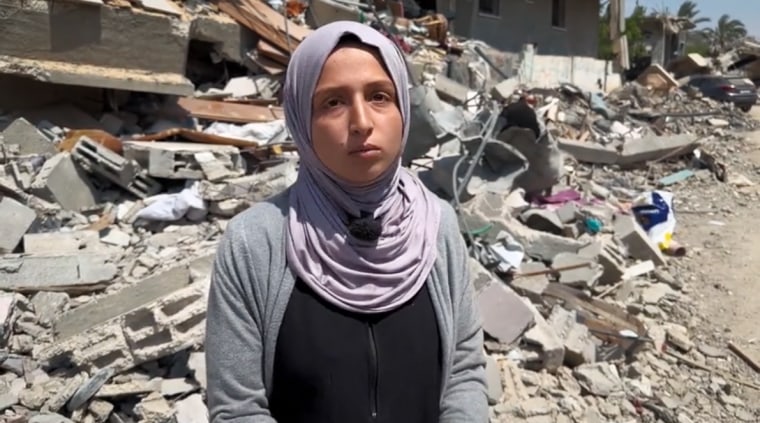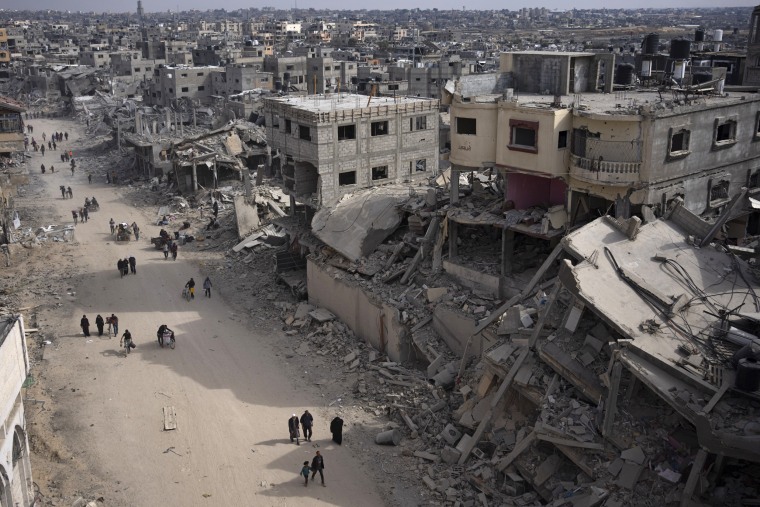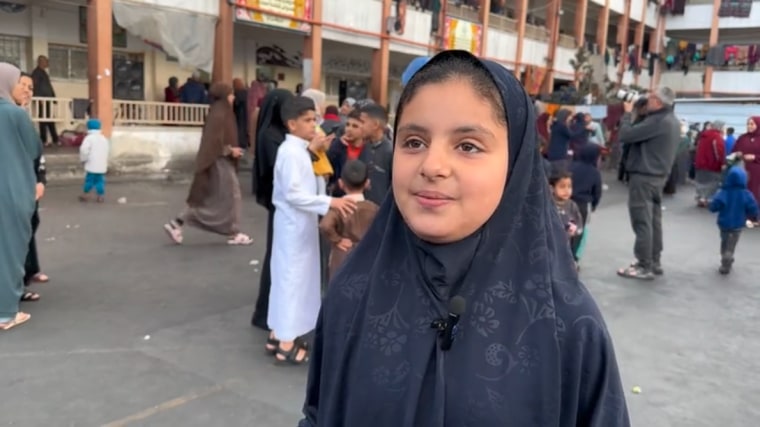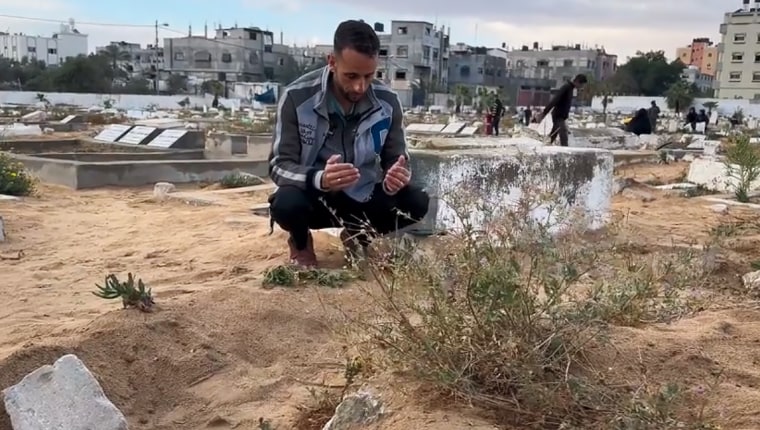It would normally be a time of feasts and family gatherings, with children dressed in new clothes and given money. This year, Seraj al-Najjar, 19, spent the Eid al-Fitr festival collecting the bones of her relatives from the rubble of her former home in Gaza’s southern city of Khan Younis.
With the sun beating down, she picked her way through the debris, dragging a sack containing the remains of family members for whom she hopes to provide a proper burial.
“Last Eid, six of my uncles came and visited me. It was pure happiness,” Najjar told an NBC News crew Tuesday, choking back tears.
This year, before millions of Muslims around the world began three days of festivities Wednesday to mark the end of the fasting month of Ramadan, Najjar said she would mourn the deaths of 25 family members, including her father, Mazen al Najjar, who were killed in Israeli shelling Dec. 5.

Najjar was among a trickle of Palestinians who returned to Khan Younis after Israel announced it had withdrawn its forces Sunday after months of fierce fighting and bombardment.
Like many, she found her former neighborhood looking like a wasteland, a moonscape of concrete and girders, upturned vehicles, bulldozed buildings, roads strewn with rubble and debris.
As people picked through the wreckage to salvage what they could from the vast destruction, a woman walked past Najjar with bags of clothes slung over her back and a baby on her hip. Next to her, a young boy covered in dust clutched a fluffy toy. Bright red, it stood out against the endless gray of debris.
Another woman sang an old Arabic song: “Home, oh home. Tell me where did the loved ones go? Where? …. Your night was full of light.”

Sifting through the debris, Najjar said the stench of death guided her to bodies that may be of her relatives, some of whom she was able to identify by their clothes, others by belongings like medication.
“We identified him by his scarf stained with blood,” she said of one of her youngest relatives, Salam. “We just saw the tiny bones.”
Whether his death will be documented remains unclear.
Health officials in the Gaza Strip say that more than 33,000 Palestinians have been killed since the war erupted Oct. 7 after Hamas burst across the border and rampaged in southern Israel, killing 1,200 people and taking more than 250 hostages, according to Israeli tallies.

Six months on and many more bodies are thought to be buried under the rubble in Gaza, where hospitals have been destroyed, food and medicine are in short supply, and most of the population of 2.3 million have been displaced.
More than half sought sanctuary in the enclave’s southernmost city of Rafah, where some handed out small bags of sweets to children and performed Eid prayers in the ruins of a mosque, its minaret still standing but its dome collapsed in a heap.
“It’s not Eid,” said Zena Hasona, 10, who fled to Rafah from Gaza City after Israel urged residents to leave when it launched its ground invasion in the north of the enclave. “We don’t have anything like we used to have. We had everything in Gaza, our family, relatives, house and friends, but now no one is here.”

Nearby, people flocked to a cemetery to pay their respects to dead relatives, an Eid tradition.
“May God have mercy upon him. He used to wake up in the morning and go to the mosque for (Eid) prayers with the children,” Ahmed al-Jamal said at the grave of his 11-year-old son, Bassam, who he said was killed in Israeli shelling last month.
“I don’t feel it’s Eid. It’s just an ordinary day,” he added, looking down at the single breeze block that marked his son’s burial spot.
Others have not been able to mark deaths in a dignified way. With morgues overburdened, some of the dead have been buried in mass graves, unidentified, robbed of their traditional funeral rites.
Back in the dystopian wasteland of Khan Younis, Najjar said she was determined that that fate would not befall her relatives.
“I won’t rest till I bury them all, bone by bone,” she said.
